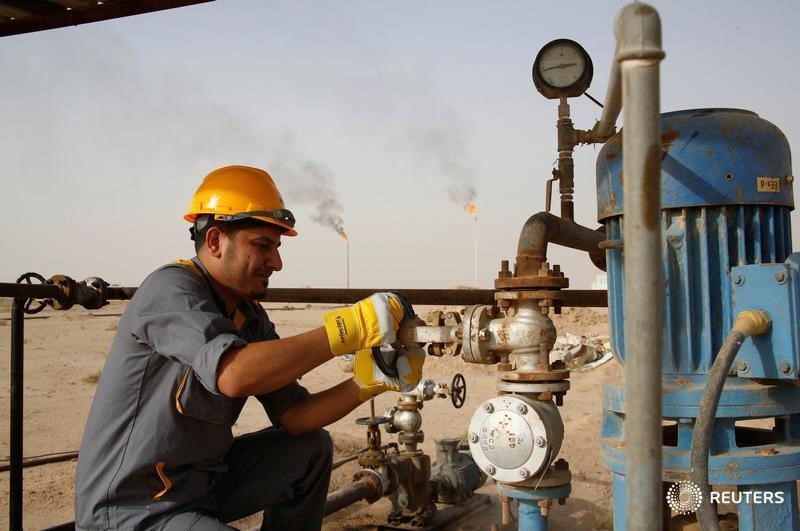By Peter Nurse
Investing.com -- Oil prices slumped Tuesday amid worries about the efficacy of the current vaccines to cope with the new Covid variant, raising fears of prolonged travel curbs and another hit to fuel demand.
By 9:15 AM ET (1415 GMT), U.S. crude futures traded 3.7% lower at $67.39 a barrel, while the Brent contract fell 3.9% to $70.35.
U.S. Gasoline RBOB Futures were down 2.8% at $2.9766 a gallon.
Sparking the latest selloff were comments from Moderna (NASDAQ:MRNA) CEO, Stephane Bancel, in a Financial Times interview, that existing vaccines would struggle to cope with the Omicron variant, predicting a "material drop" in their effectiveness.
Regeneron (NASDAQ:REGN) added to the concerns by releasing a statement on Tuesday indicating that analysis suggested its Covid-19 antibody cocktail could have reduced activity against the new variant.
A number of countries worldwide have already imposed travel curbs on travelers from southern Africa, where the Omicron variant was first discovered, and worries are mounting that these restrictions could last for a while if vaccines have to be reconfigured.
“It is still too early to sensibly assess the risk that omicron poses and this uncertainty is likely to add further volatility to the oil market,” said analysts at ING, in a note.
On the back of this weakening demand outlook, expectations are growing that the Organization of the Petroleum Exporting Countries and Russia, a group known as OPEC+, will decide to hold back on their previous plan to add 400,000 barrels a day to global supply in January, when it meets on Thursday.
“The group has already delayed its Joint Ministerial Monitoring Committee and Joint Technical Committee meeting to later in the week, in the hope that more information with regards to omicron would become available,” ING said. “We would not rule out the group pausing its supply increases over January.”
Also of interest to the crude market was the resumption of talks between Iran and world powers to try to save their 2015 nuclear deal, an agreement of which could result in the U.S. lifting sanctions on the Persian Gulf country.
“Lifting sanctions on Iran would see a sizable increase in Iranian supply. Iranian output is currently around 2.5MMbbls/d, whilst prior to the U.S. pulling out of the nuclear deal, Iran produced as much as 3.8MMbbls/d,” ING said.
U.S. inventory data from the American Petroleum Institute are due at 4:30 PM ET.
